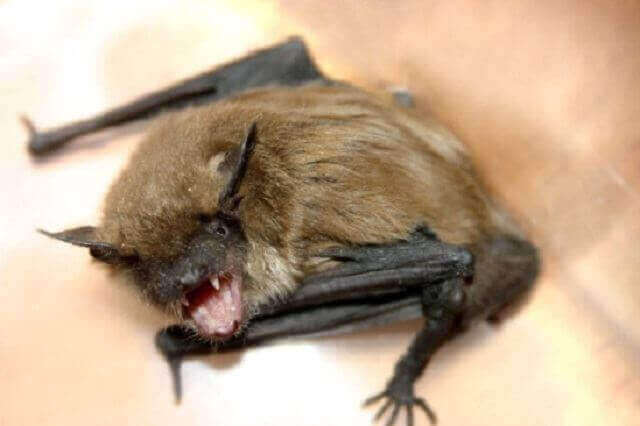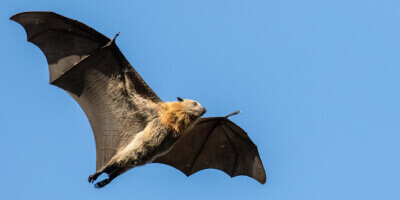If you ever sat in on your back deck looking up at the stars, you’ve probably seen bats swooping overhead. It can be a little jarring, but the more you know about bats, the less you may be squeamish about them. Let’s talk bats!
Why Are Bats Important
Bats play an essential role in pest control, pollinating plants, and dispersing seeds. Recent studies estimate that bats eat enough pests to save more than $1 billion per year in crop damage and pesticide costs in the United States corn industry alone. Across all agricultural production, consumption of insect pests by bats results in savings of more than $3 billion per year. While many bats eat insects, others feed on nectar and provide critical pollination for a variety of plants like peaches, cloves, bananas, and agaves. In fact, bats are the sole pollinator for the agave plant, a key ingredient in tequila! A third bat food source is fruit, leading to yet another important role in the ecosystem – seed dispersal. Fruit-eating bats can account for as much as 95% of the seed dispersal responsible for early growth in recently cleared rainforests. In addition, scientists have discovered that some small bats can catch up to 1,000 or more small insects in a single hour. A nursing mother bat eats the most – sometimes catching more than 4,000 insects in a night. Next time you’re sitting out on your deck on a summer night and the mosquitoes aren’t biting – thank a bat (or your pest control provider if you had mosquito treatments done!).
Why Are Bats Protected

Besides the reasons we laid out above how important they are, bats are protected by law because their existence is threatened. Bats serve an important ecological function as well as natural services to humans like pest control assistance with agriculture crop production while simultaneously protecting human health through disease prevention. The main reason bats are protected is that each female bat will only have one baby per year. So, if they weren’t protected, humans would just wipe them out. That’s why pest control companies can only remove them from structures after the bat babies can fly on their own. We think those are pretty good reasons to protect them!
Why Are Bats Blind
This is actually a myth. Bats are not blind. Bats have small eyes with very sensitive vision, which helps them see in conditions we might consider pitch black. They don’t have the sharp and colorful vision humans have, but they don’t need that. It is true that bats are known for their exceptional hearing, though. Some species of bat use echolocation, meaning they squeak while in flight, and use the echo to navigate. Pretty impressive!
Why Are Bats Nocturnal

It’s mostly for self-preservation. Most bats are nocturnal – using the darkness of night as protection from predators. Regardless, you may ask, “Do bats like light?” While most will avoid daytime activity, each species can handle different amounts of light. Nighttime is also when most insects are out, so if their food source is out there, then so are they. There’s also less competition for food at night. The cooler temperature at night is another reason bats are active then.
So, now that you know just how important and good bats are, will you judge them a little less? After all, vampire bats don’t live in the United States, so there’s one less thing about bats to worry about. These furry flyers really have gotten a bad rap. Obviously, you don’t want them in your attic but that’s true of any wild animal. You just have to be more careful when removing a bat. Just make sure you contact a company that knows the laws and how to humanely remove the bats. Don’t just call in any bat… man… you get the idea.